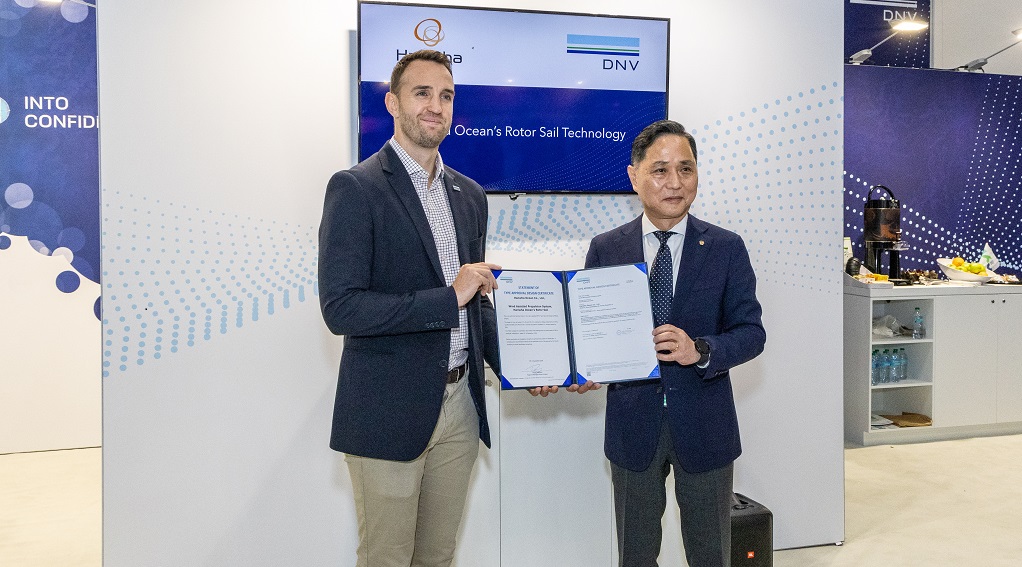DNV has awarded Hanwha Ocean Type Approval Design Certification (TADC) for its innovative rotor sail technology, the first certification of a rotor sail approved for installation in hazardous zones in South Korea.
The TADC, issued by DNV, confirms that Hanwha Ocean’s Rotor Sail, designed with composite materials, is in line with DNV and international safety standards, guidelines and regulations and ready for practical application on commercial vessels. The certification process involved detailed design reviews and assessments, ensuring that the rotor sail meets the rigorous standards for real-world deployment.
Hanwha Ocean, said: “Receiving this certification from DNV is a major milestone for us. It validates the safety and effectiveness of our rotor sail technology. We are committed to continuing our work on eco-friendly solutions that provide shipowners with confidence in choosing Hanwha Ocean products.”
Vidar Dolonen, Regional Manager at DNV Korea and Japan added: “With increasing demand for solutions that can improve energy efficiency, cut emissions, and reduce the commercial impact of utilising low and carbon-neutral fuels, innovations like Hanwha Ocean’s rotor sails can provide immediate, tangible benefits. Our collaboration with Hanwha Ocean on these rotor sail technologies opens up further segments to these solutions and reflects our shared commitment to decarbonizing shipping.”
As a result of its “Ex-proof” rating and equipment, the TADC also covers the installation of the rotor sail in hazardous zones onboard vessels, for example on tankers and vessels carrying explosive liquids, gases, and dangerous cargo.




Recent Posts
FRV Partners with Envision Energy on Green Ammonia Project in Brazil
Hamburg Trials HVO 100 Biofuel for Port Fleet as Interim Decarbonization Measure
CUMTA considers water metro linking ECR and Napier bridge
BSM unveils methanol bunkering simulator to equip seafarers for greener shipping
DPA commissions India’s first Make-In-India green hydrogen plant at Kandla
Port of Tauranga to Trial New Zealand’s First Fully Electric Straddle Carrier
OceanScore Crosses 2,300-Vessel Mark as Demand for Compliance Solutions Grows
HD Hyundai and H-Line Shipping Collaborate on AI-Powered Autonomous and Eco-Friendly Vessel Technologies